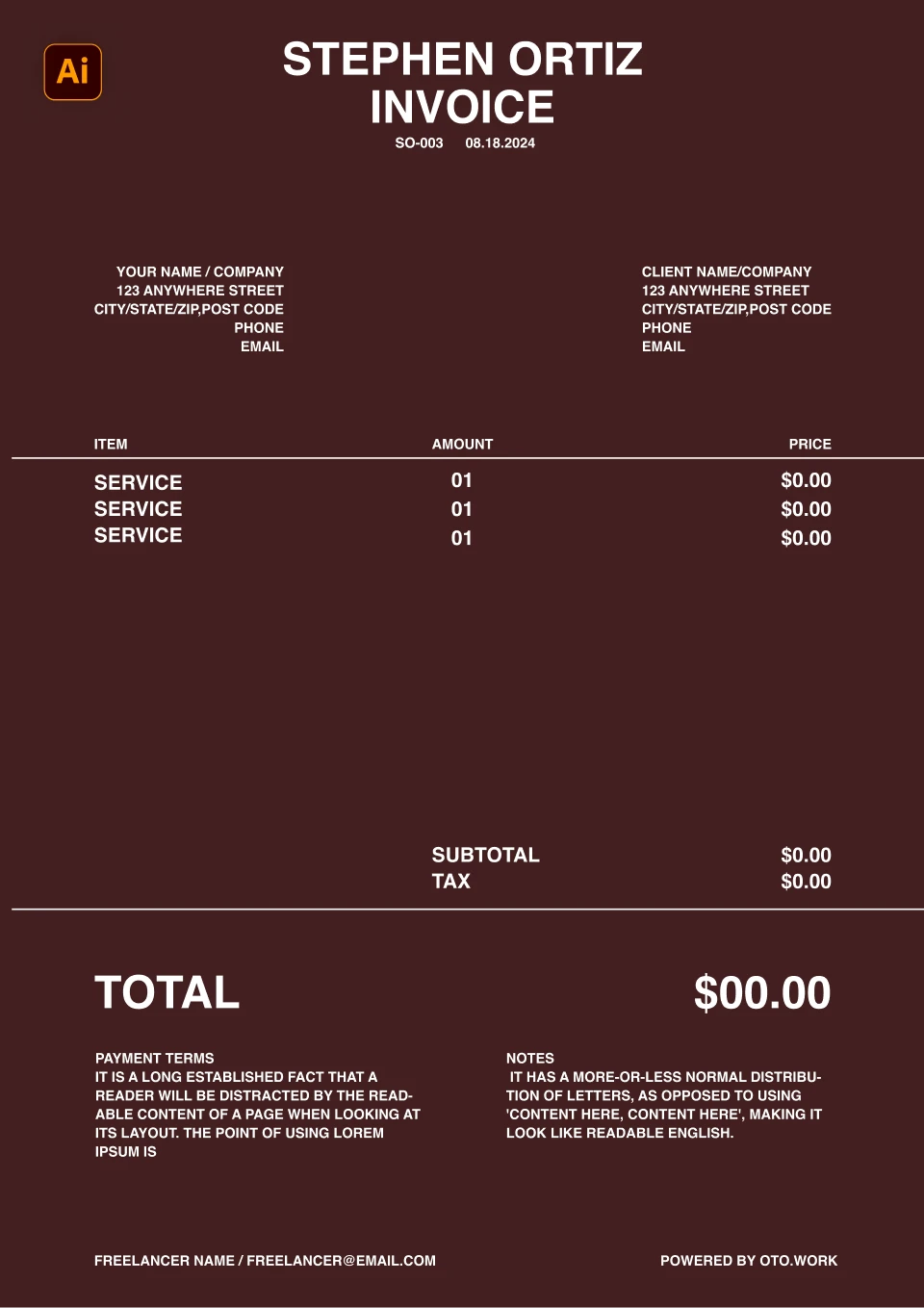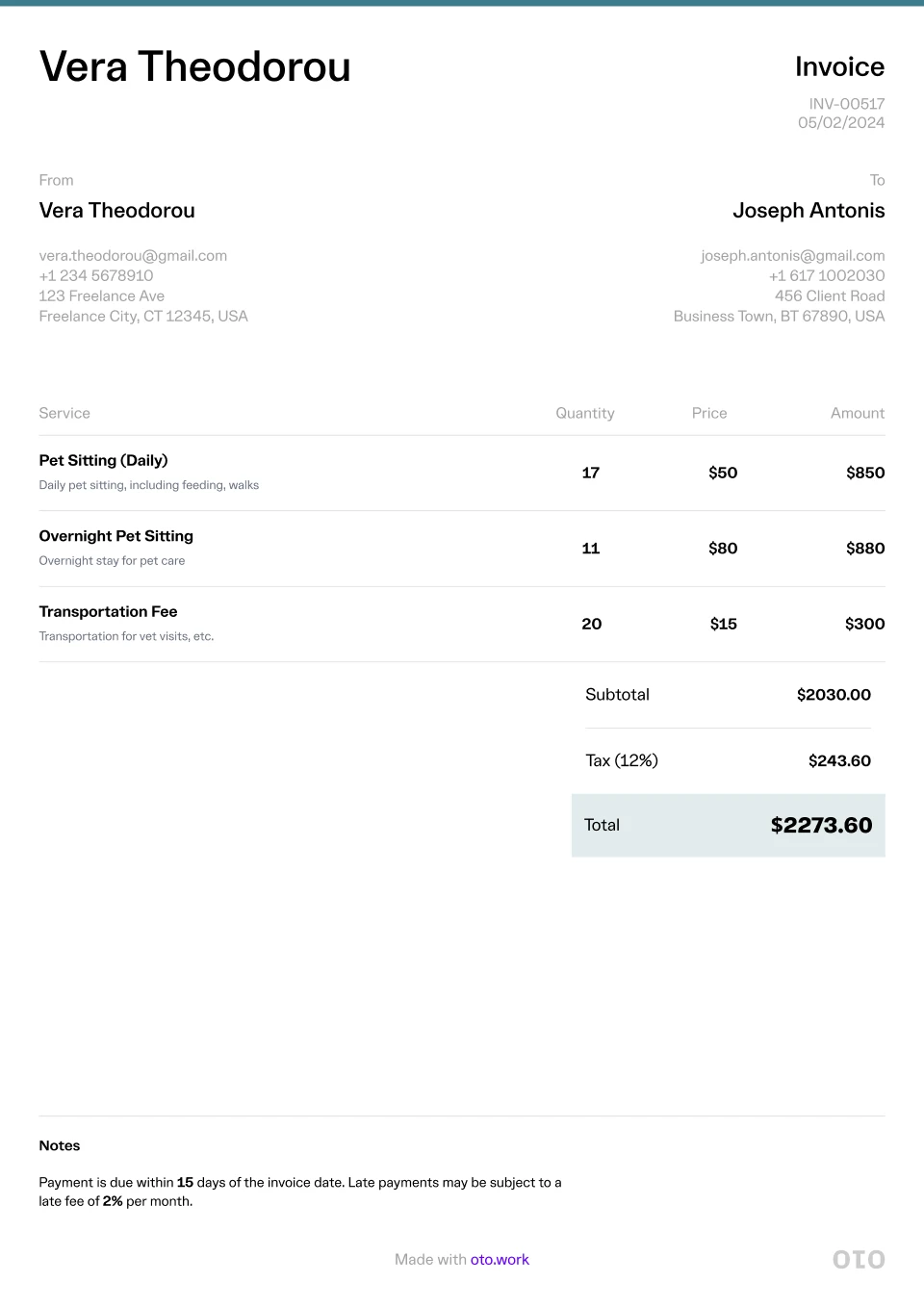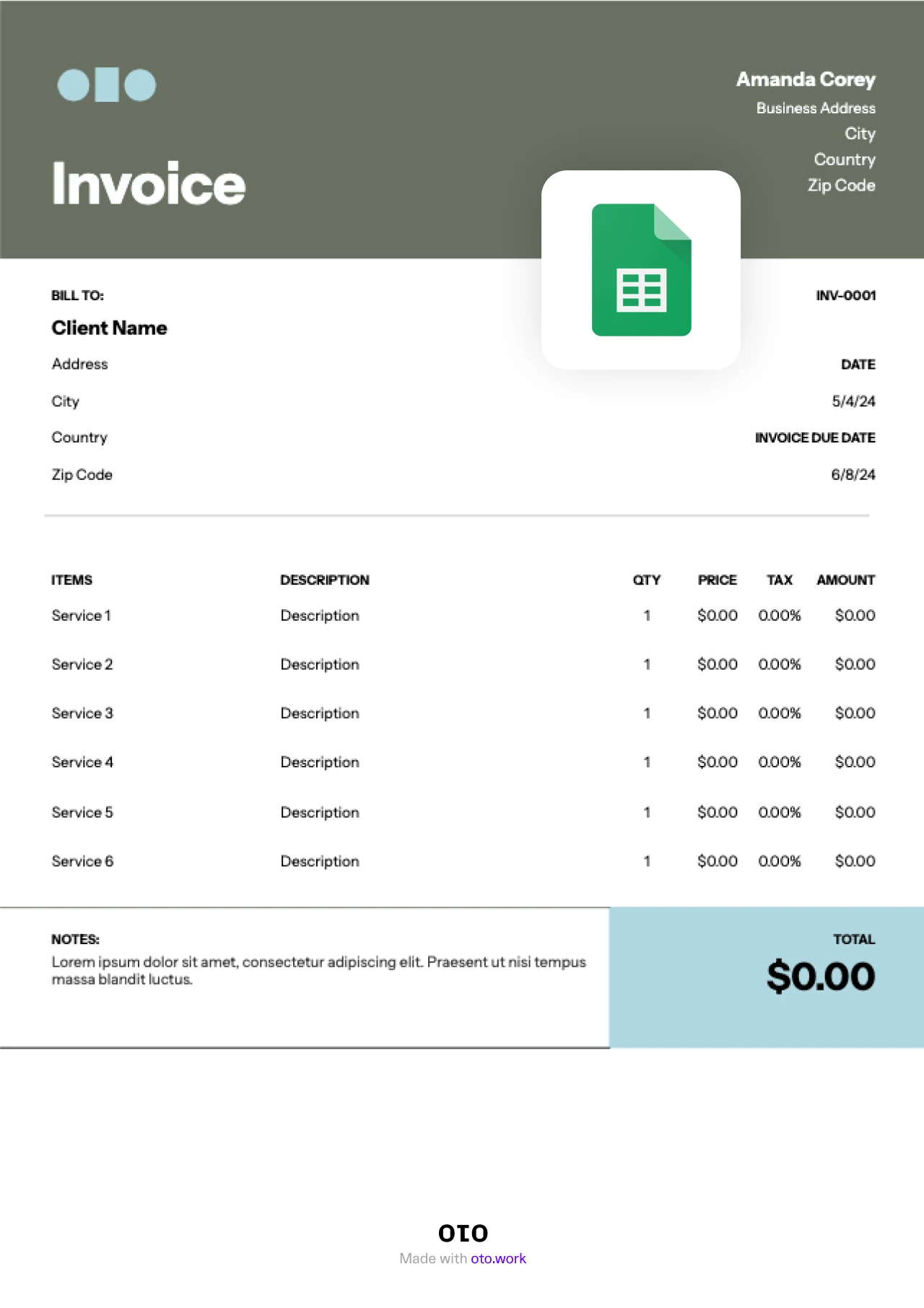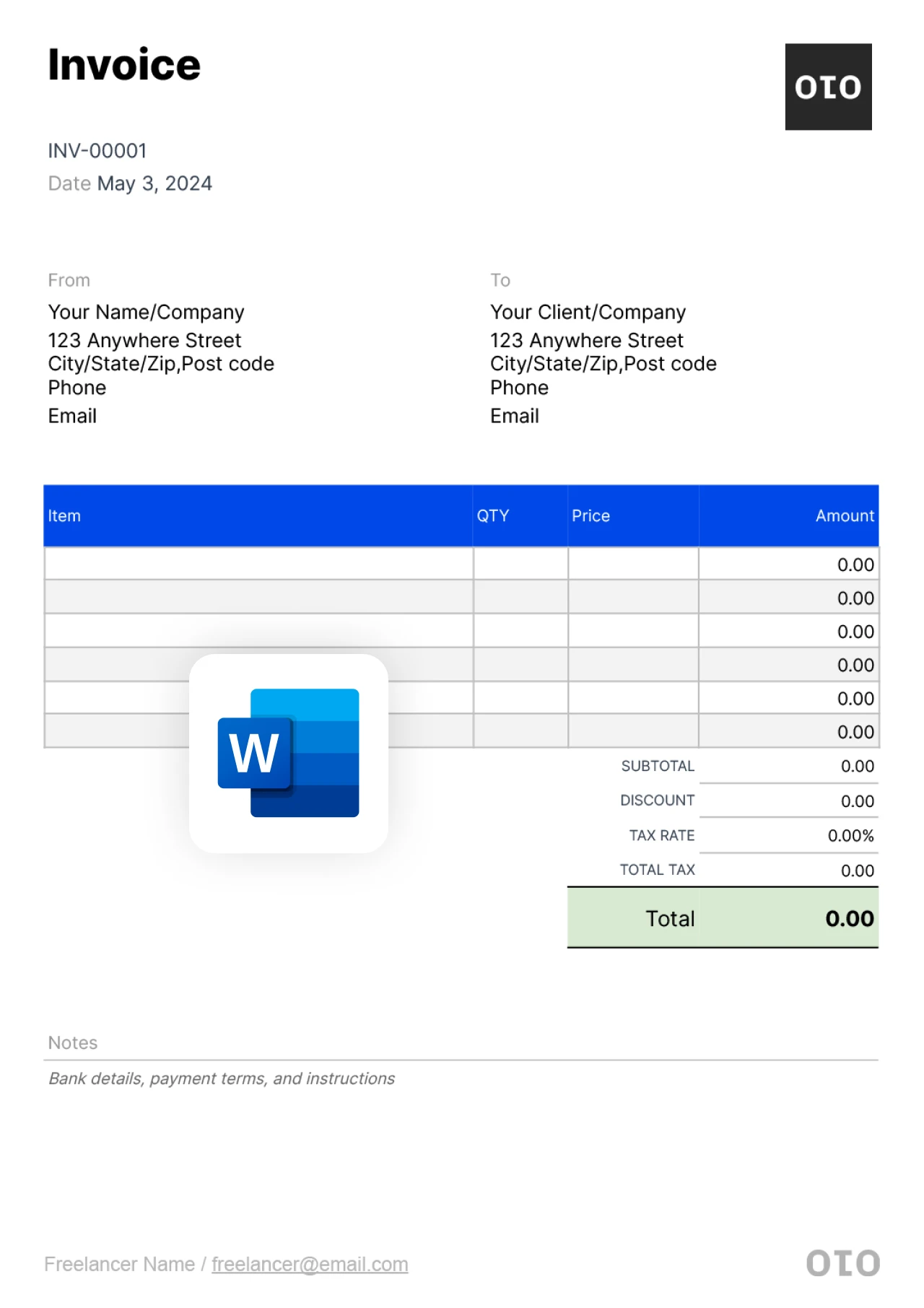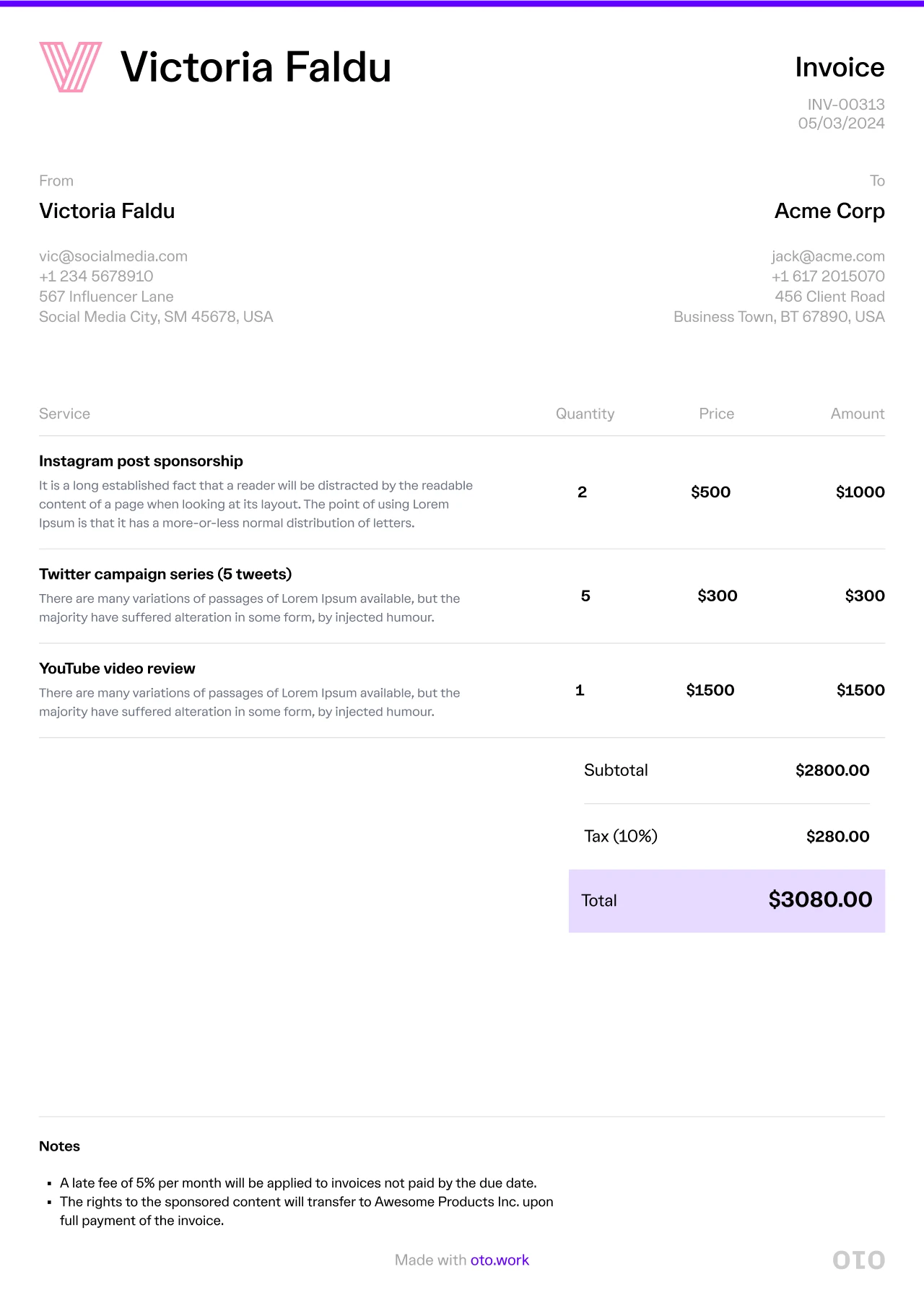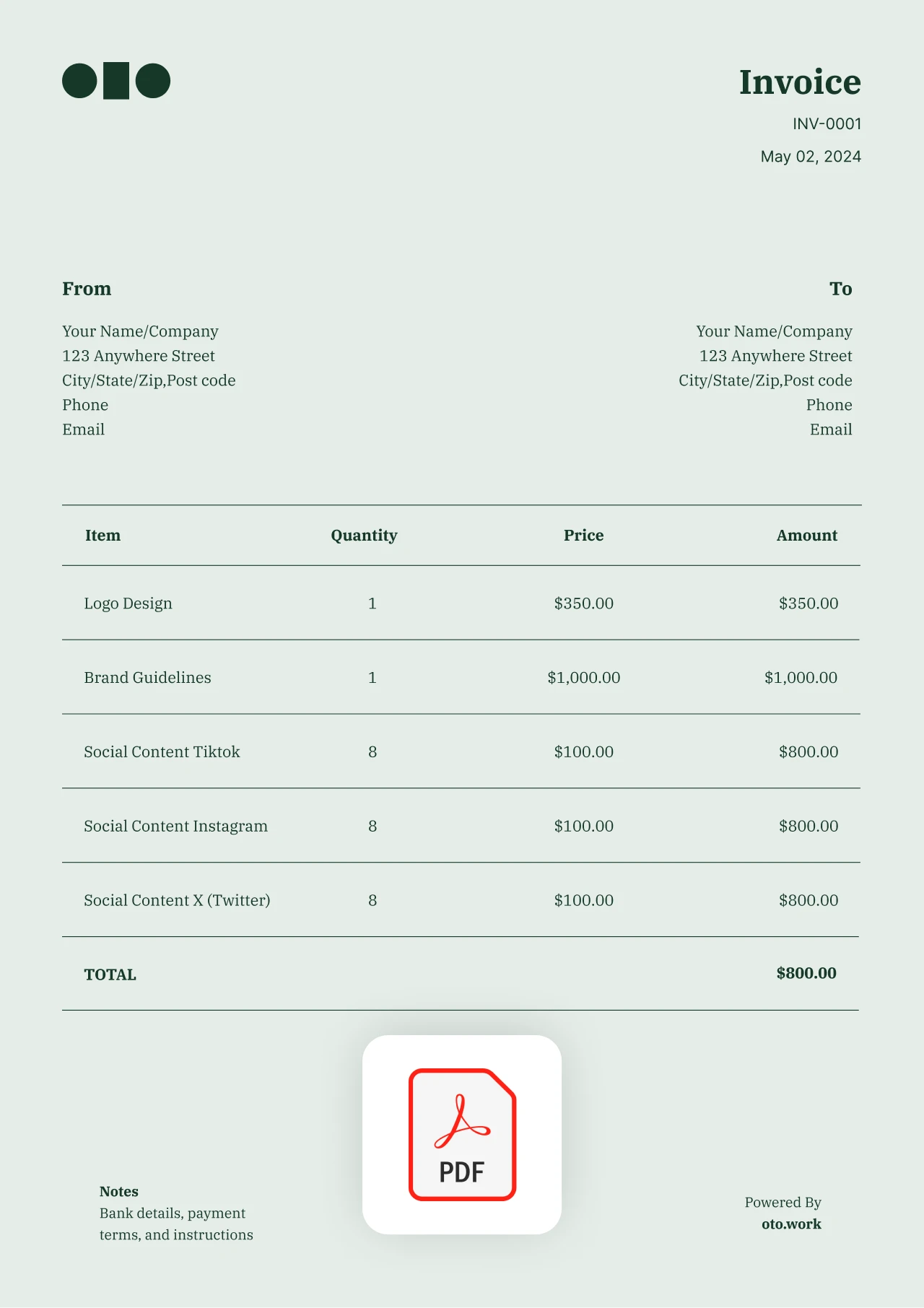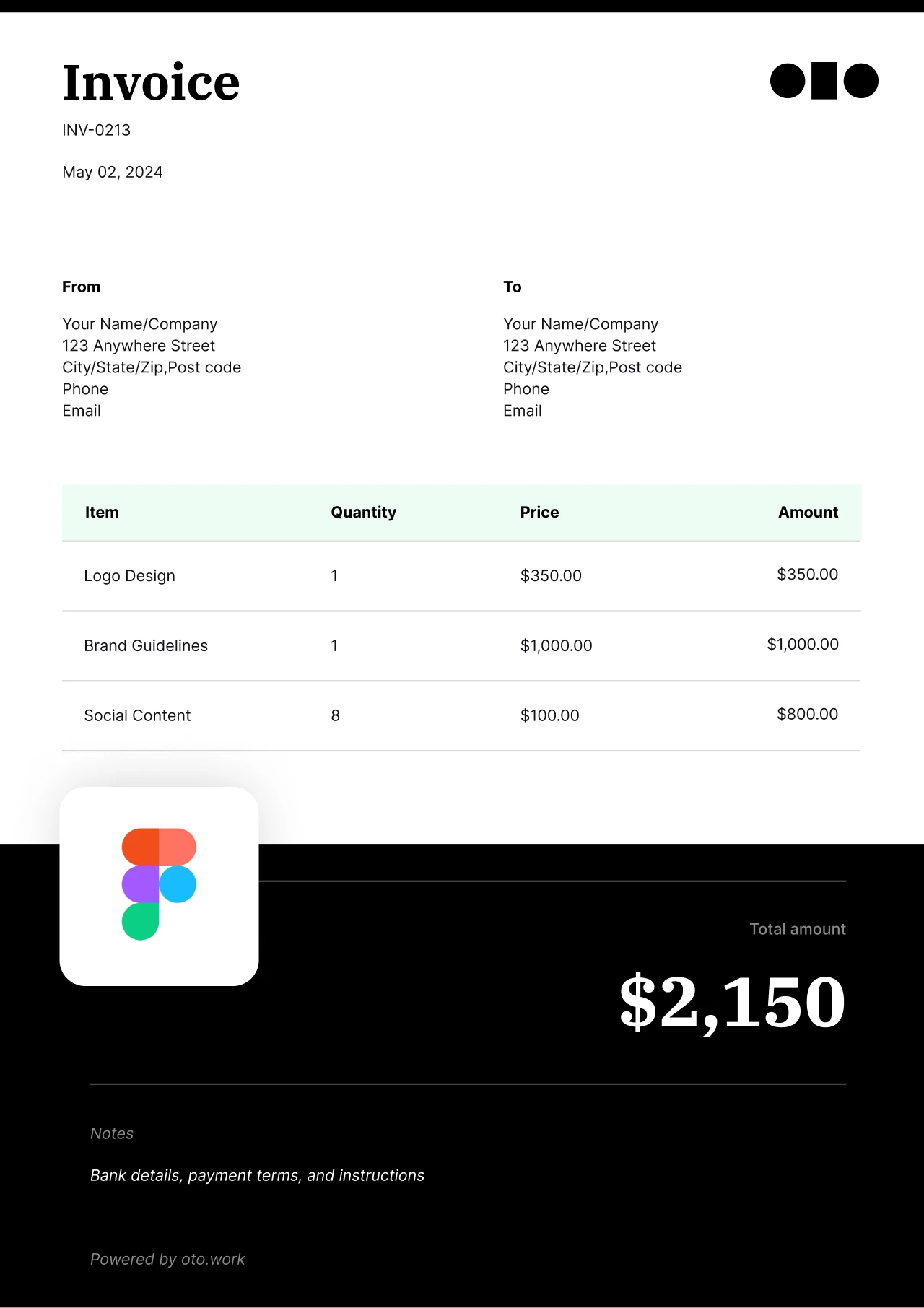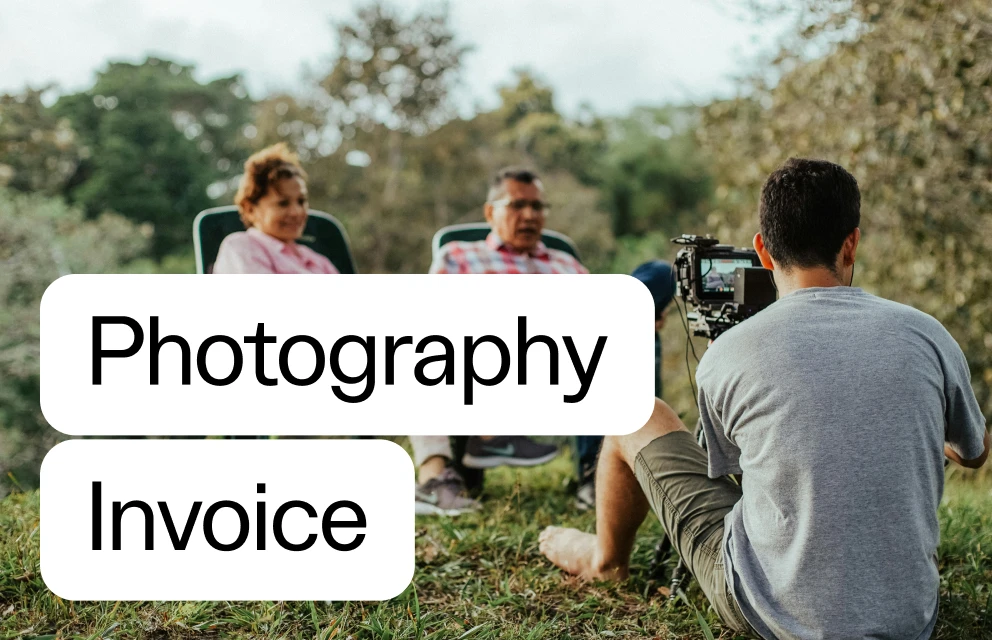Music Invoice Template
 FREE
FREECreate a Free Invoice
Spend more time composing melodies and less time on paperwork. Use our free invoice template to get paid faster for your musical performances and projects.
As a musician, your art lies in creating melodies that move, inspire, and touch the soul. Your craft demands your full creative energy and unwavering dedication to your music.
So why waste precious time and mental focus on the administrative hassles of running your freelance career, like invoicing clients?
With our carefully crafted musician invoice template, you can simplify the billing process, allowing you to concentrate on what you do best – composing, performing, and producing music that resonates with your audience and elevates your clients' projects.
Why Do You Need a Music Invoice?
A well-structured invoice is more than just a formality; it's a crucial part of your business as a freelance musician. It reflects your professionalism and helps ensure that you’re compensated fairly and on time for your talents.
An invoice serves as a clear record of the services you’ve provided, whether it’s a live performance, studio session, or custom composition.
It establishes a mutual understanding between you and your client, outlining the details of the work and payment terms. This clarity helps prevent misunderstandings or disputes, ensuring a smooth transaction.
Without a proper invoice, you could face delays in getting paid, confusion over the agreed-upon terms, and potentially even legal issues.
By using a professional invoice, you not only reinforce your credibility but also protect yourself and your income.
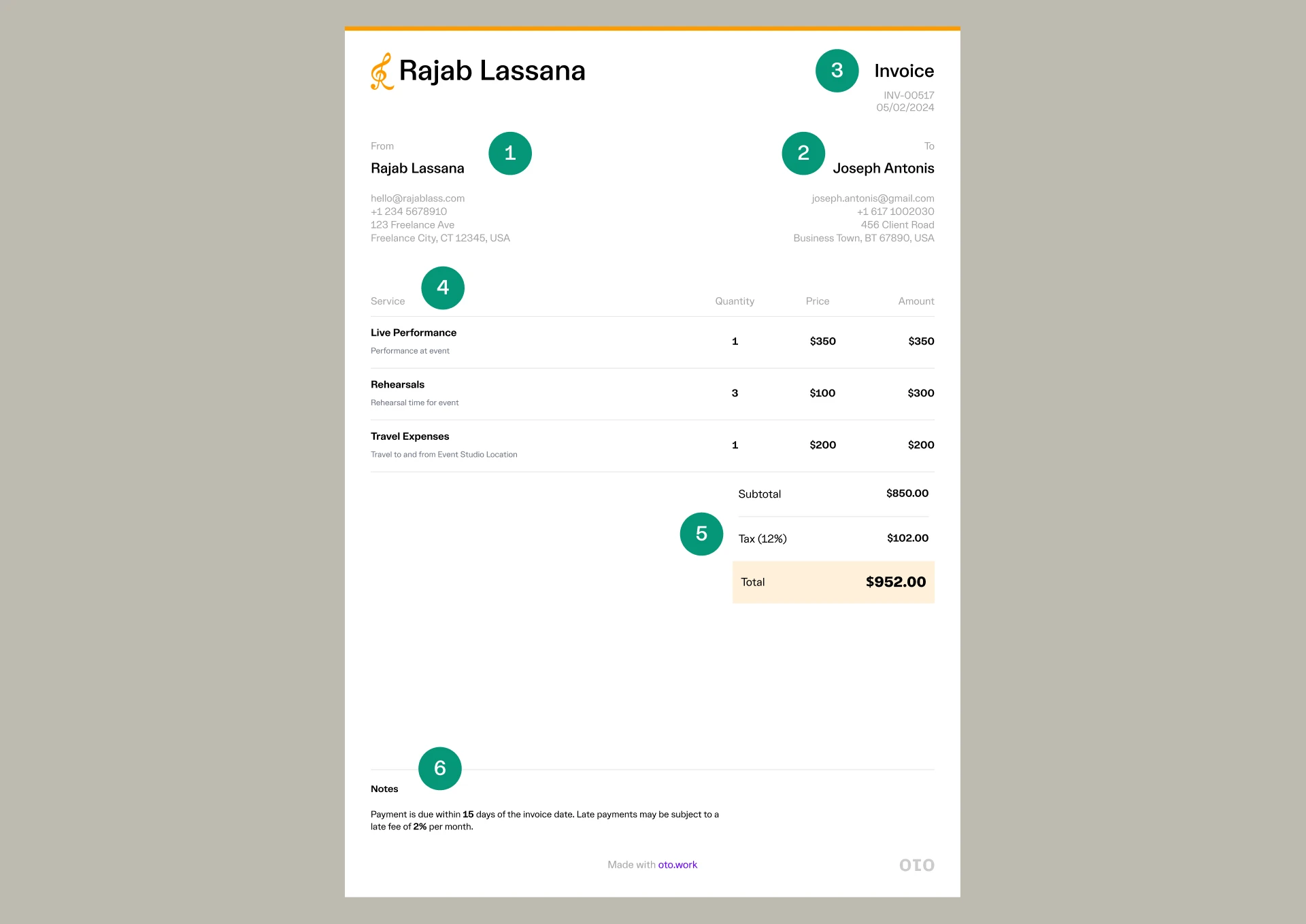
What Should Be Included in a Music Invoice?
A well-structured musician invoice does more than just tally up your fees—it’s a professional document that reflects your brand, helps you stay organized, and ensures you get paid smoothly and on time.
Here are the key elements every musician’s invoice should include:
Basic Information
- Your name or band name, along with your logo (if applicable)
- Your contact information (address, phone, email)
- Client’s name and billing address
- Unique invoice number
- Issue date and payment due date
Project Details
- Description of the services provided (e.g., live performance, studio session, composition)
- Itemized list of each service (e.g., rehearsal time, travel expenses)
- Date and location of performances or sessions
- Any additional notes, such as special requests or agreed-upon details
Pricing Breakdown
- Fees for each service or performance
- Hourly rates or flat fees
- Any additional charges (e.g., travel expenses, equipment rental)
- Taxes (if applicable)
- Total amount due
Including these details in your music invoice not only ensures that both you and your client are on the same page but also enhances your professionalism and simplifies the payment process.
By presenting a clear and detailed invoice, you minimize the risk of payment delays and misunderstandings, ensuring that your hard work is recognized and compensated appropriately.

What Types of Music Invoices Are There?
As a freelance musician, you might encounter various scenarios that require different types of invoices.
Depending on the services you provide, you may need to tailor your invoice to fit the specific needs of the job. Here are some common types of music invoices:
1. Performance Invoice
This invoice is used for live performances, such as concerts, weddings, corporate events, or private parties.
It typically includes details like the date and location of the performance, the duration, any special requests, and associated fees like travel or setup costs.
2. Session Musician Invoice
If you’re hired to play in a recording session, this invoice will outline your contribution, whether it’s per track, per hour, or per project.
It may also include fees for rehearsal time, equipment rental, or transportation to the studio.
3. Composition Invoice
This invoice is for when you create original music or compositions for a client, such as a jingle, film score, or custom song.
It details the scope of the composition, any revisions included, and the agreed-upon fee structure—whether it’s a flat rate or based on the complexity of the work.
4. Licensing Invoice
If you’re licensing your existing music for use in commercials, films, or other media, this invoice covers the terms of the license, including the usage rights, duration, and fees.
It’s crucial to ensure that both parties are clear on how the music can be used and for what period.
Extra Reading: What are Perpetual Rights?
5. Teaching or Lesson Invoice
For musicians who offer private lessons or workshops, this invoice would detail the sessions provided, including the date, time, and location of each lesson.
It may also include materials provided, like sheet music or instructional videos, and any package discounts applied.
6. Royalty Invoice
If you’re receiving royalties from performances, broadcasts, or sales of your music, this invoice might be used to document and request the payment due.
It typically includes detailed information about the usage of your music and the percentage or amount owed.
7. Equipment Rental Invoice
If you rent out your instruments or sound equipment, this invoice would cover the details of the rental agreement, including the equipment provided, the rental period, any damage deposits, and the total cost.
How Does an Invoicing Tool Help Simplify Your Efforts?
Managing finances as a freelance musician can be challenging, especially when juggling multiple gigs, performances, and clients.
An invoicing tool like oto can significantly simplify this process, allowing you to focus more on your music and less on administrative tasks.
1. Easy and Professional Invoice Creation
With oto, you can quickly create customized invoices that reflect your brand. Whether you’re billing for a live performance, studio session, or music lessons, oto provides templates tailored to your specific needs.
This means you can generate professional invoices in minutes, ensuring that all essential details are included, from project descriptions to payment terms.
2. Automated Payment Tracking
oto helps you keep track of which invoices have been sent, viewed, and paid, reducing the risk of missed payments.
With automated reminders, you can gently nudge clients about upcoming due dates or overdue payments, ensuring your cash flow remains steady without the need for awkward follow-ups.
3. Streamlined Expense Management
As a musician, you often incur various expenses, such as travel, equipment rental, or studio time.
oto allows you to easily log these expenses and even attach receipts to your invoices. This makes it simpler to pass on costs to your clients or keep accurate records for tax time.
4. Recurring Invoices for Regular Clients
For musicians who have regular gigs or ongoing teaching sessions, oto offers the option to set up recurring invoices.
This feature saves time and ensures consistency, as you don’t have to manually create a new invoice for every session or performance.
5. Secure Online Payments
oto enables your clients to pay invoices directly online through secure payment gateways.
This convenience encourages quicker payments and reduces the hassle of handling checks or cash.
Plus, all payment details are securely stored, giving you peace of mind.
Using an invoicing tool like oto simplifies your financial management, giving you more time to focus on what you love—making music.
Whether you’re managing a single gig or an entire tour, oto helps streamline the process, ensuring you get paid accurately and on time.
More Invoice Template Formats

